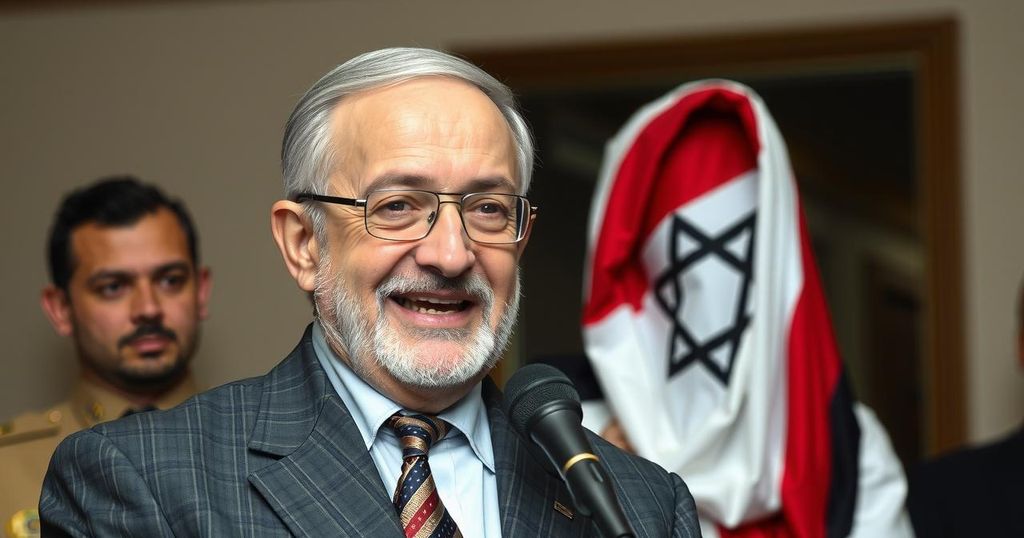Former President Jimmy Carter, remembered through his role in the Camp David Accords, is seen as a crucial figure in Arab-Israeli relations, though his legacy is marked by the gradual neglect of the Palestinian cause. His post-presidential advocacy for Palestinian rights challenges the historical U.S. support for Israel, highlighting the need for a reassessment of U.S. foreign policy in the region.
The legacy of former President Jimmy Carter, who passed away at the age of 100, extends significantly to the realm of Arab-Israeli relations, marking him as a pivotal figure in the establishment of normalisation agreements. His presidency saw the initiation of the Camp David Accords, which facilitated peace between Egypt and Israel. However, these accords also inadvertently set the stage for a gradual abandonment of the Palestinian cause by Arab states and a shift in U.S. foreign policy priorities that neglected Palestinian rights.
Upon assuming office in 1977, President Carter played a crucial role as an intermediary in the negotiation of the Camp David Accords between Egyptian President Anwar Sadat and Israeli Prime Minister Menachem Begin. The subsequent peace treaty formalised diplomatic ties and economic cooperation, yet it did little to address the ongoing plight of the Palestinian people. Starkly, while there was a historic milestone in Arab-Israeli relations, the accords did not catalyse the desired peace and justice outcomes in the region.
The accords spoke of autonomy for the ‘inhabitants’ of Palestinian territories but failed to acknowledge their rights to a sovereign state. The U.S. disregarded the Palestine Liberation Organization (PLO) and the aspirations of the Palestinian people in subsequent negotiations. The absence of Palestinian voices during the peace processes, especially after the outbreak of the first Intifada, highlighted a troubling trend of sidelining Palestinian rights in favor of Arab state interests.
In the ensuing decades, the evolving dynamics of U.S. diplomacy continued to marginalise the Palestinian narrative. The Oslo Accords, facilitated by the U.S., only entrenched the marginalisation further, requiring Palestinian recognition of Israel before addressing their own grievances. The subsequent normalisation deals, such as the Abraham Accords, reinforced this pattern, with Arab states prioritising bilateral relations with Israel over Palestinian statehood.
Despite his earlier contributions to Middle East diplomacy, Carter’s post-presidential reflections marked a significant shift. In 2007, he published “Palestine: Peace Not Apartheid,” expressing discontent with U.S. policies that supported Israel unconditionally. This marked a courageous deviation from mainstream political narratives, as he candidly classified Israeli actions in the occupied territories as apartheid.
The passing of Carter prompts a reevaluation of U.S. policies in the Middle East, particularly concerning the Israeli-Palestinian conflict. The need for a reversal that acknowledges Palestinian rights and holds Israel accountable for its actions aligns with the principles that Carter championed throughout his life. As discussions of his legacy unfold, it is imperative to reflect on the need for a healed and just approach to the ongoing issues in Palestine.
The article discusses the legacy of Jimmy Carter as a significant figure in the evolution of Arab-Israeli relations, specifically through his role in the Camp David Accords and the subsequent peace treaty between Egypt and Israel. It highlights the contrasting consequences of these agreements, illustrating how they contributed to the gradual neglect of the Palestinian cause by Arab states and the U.S. government. It explores the historical context of Palestinian representation in peace negotiations and critiques the ongoing practices that undermine their rights. Additionally, it examines Carter’s shift in perspective post-presidency, culminating in his impactful book on Israeli policies against Palestinians.
In summary, while Jimmy Carter initially facilitated critical peace agreements between Israel and Arab nations, these actions also inadvertently contributed to the marginalisation of the Palestinian struggle. His later advocacy for Palestinian rights underscores the complexities of U.S. foreign policy and the pressing need for its reassessment. Revisiting Carter’s perspective may inspire a more equitable approach, one that champions justice for the Palestinian people and holds all parties accountable in the ongoing struggle for peace in the Middle East.
Original Source: www.aljazeera.com






